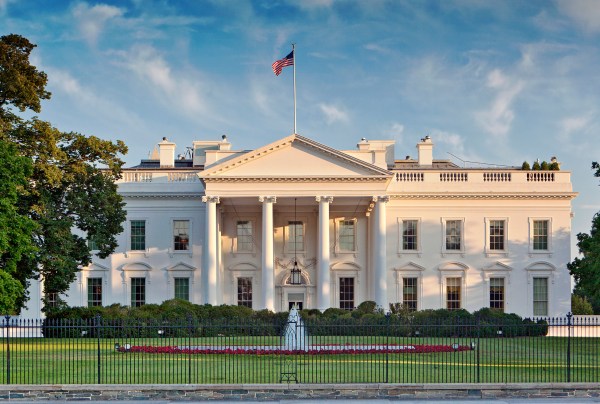“Why are we so divided?” That’s probably the most asked question in American politics, especially since that Divider-in-Chief descended the golden escalator and announced that he alone could bring an end to America’s decline. Donald Trump’s election, however, is not the origin of America’s almost decadelong cosmopolitan-country sneer fest. It’s been a while coming.
Elizabeth Currid-Halkett gives her explanation of America’s division problem in The Overlooked Americans: The Resilience of Our Rural Towns and What it Means For Our Country. Columbia-educated and now a professor of urban planning at the University of Southern California, Currid-Halkett is very much a cosmopolitan elite in good standing. But that’s just part of her story. She also grew up in Danville, Pennsylvania, a town of about 5,000 in the heart of what used to be coal country. She is a daughter of the national heartland that has suffered the worst effects of deindustrialization.
This description might remind some of Hillbilly Elegy, a memoir many found exploitative of the suffering and despair of poor whites principally as a way to generate capital for the author’s other interests. But fear not: Currid-Halkett is a serious scholar with genuine interest in, and even affection for, the people she depicts. It is not her perspective that comes first, but theirs. She achieves this through a deep empirical analysis of survey data, alongside hundreds of hours of interviews with rural Americans.
The first half of the book argues that differences over politics or economics between urban cosmopolitans and rural-home folks are often overstated. Using results from the General Social Survey (GSS), Currid-Halkett shows that on a range of questions—from pride in American democracy to confidence in political institutions and personal happiness—urban and rural voters vary only modestly. When asked, for example, about our political system (“How well does democracy in America work today?”) both urban and rural voters cluster near the center of a 10-point scale, suggesting they both think our country’s political system works moderately well.
This urban-rural convergence extends to other issues in surprising ways. Among those with less than a high school education, rural Americans were more likely to strongly support hiring preferences for black Americans than those living in urban areas (37.5 percent to 32.2 percent). Almost equal numbers of rural and urban residents with less than a high school degree agreed these hiring preferences were “not very likely” to hurt whites. Similar patterns hold for attitudes toward Muslims, with somewhat more rural Americans holding neutral attitudes toward them than urban residents (43.6 percent to 37.6 percent).
Currid-Halkett’s analysis does show that some divisions along racial lines are more pronounced. For instance, 5 percent of rural whites support government aid to black communities. This sounds alarming until one realizes that just 10 percent of urban whites support aid to black communities. Meanwhile, blacks (and both rural and urban minorities) are about three times as likely to support this type of aid compared to whites. Despite decadeslong efforts to foster greater solidarity across race, racial differences continue to be predictive on some key questions.
Currid-Halkett also makes the case that our perceptions of how well rural areas are doing often miss the mark. The “deaths of despair” narrative is so embedded in our public discourse that rural America has, mostly in our imaginations, been transformed into a dystopia. But in the words of one of her interview participants: “You’d be surprised at how well we’re doing.” GSS survey data shows that rural Americans are slightly happier with their marriages (64.9 percent to 62.2 percent) and their jobs (50 percent to 44.5 percent) than urban Americans. The two groups are exactly equal in terms of satisfaction with their financial situations (45.2 percent for both groups). And urban dwellers are only slightly more likely to say they are “pretty happy” with their lives (55.9 percent to 53.7 percent). On measure after measure—including median income, unemployment, and home ownership—Currid-Halkett’s research suggests rural America may be doing a lot better than we think.
So then what’s causing all the sturm und drang? For Currid-Halkett, the answer lies in educational and cultural differences. About 17 percent of rural residents hold bachelor’s degrees, compared to nearly 25 percent of urbanites. In 1990, urban areas had 36 percent more college graduates than rural areas; today, that figure has risen to 41 percent. To take just one example, while just 12 percent of Texas residents have four-year degrees, nearly half of those living in Austin do. On multiple dimensions, from access to opportunity to economic dynamism, this educational lag has a large price tag. Moreover, educational divides tend to express themselves in a package of social and cultural preferences that not only highlight differences—mainly rooted in religious beliefs and practices on both sides—but are the main ways by which urban elites exercise cultural power over and against rural residents. This is where “woke” meets the country road.
According to Currid-Halkett, educated urban elites insist not just on nominal and legal equality between people across dimensions of race, sex, and sexual orientation. They also demand a specific (and constantly evolving) vocabulary for recognizing and upholding equality. This vocabulary, she says, and the worldview it expresses, relates to the strong currents of the “cultural capital” required to join and benefit from the globalized economy. The unwillingness of rural Americans to play along with “wokeness” reinforces urban America’s economic advantages and provides it a social and political cudgel to wield against rural dwellers. The phenomenon also tends to strengthen the sociocultural boundaries around rural America, as rural residents stand watch on the ramparts of the institutions they do control—mainly their churches—for possible woke incursions.
The Overlooked Americans offers two main solutions to this increasingly rancorous urban-rural culture war. The first, and most profound, is to try to persuade urban elites that what they often regard as “facts” are instead deeply informed by philosophical commitments that mimic, and perhaps replace, the role religion played for earlier generations. Some of what urban dwellers believe is “science” is what Currid-Halkett calls “scientism,” or an ideology of science that forms a kind of sacrament for urbanites, and a symbol of tribal identity. A little introspection among elites on the role of commitments to progressive environmentalism, gender, and sex orthodoxies is in order. The search for transcendence is everywhere, including at Whole Foods.
The book also couples this call to epistemic humility with one for Americans to become better, less judgmental listeners. Currid-Halkett’s advice in this area boils down to one of the precepts of all interpersonal engagement: Assume good intent until proven otherwise. The failure to use the correct pronouns or a decision to vote for Donald Trump says very little about someone’s motivations and beliefs, or about the importance attached to those actions. As curiosity replaces outrage, Currid-Halkett argues, we will be able to find the values that connect rather than the differences that divide.
What resonates with me especially is the importance she places on finding ways to create more avenues for opportunity among overlooked Americans. This has two elements. The first is encouraging the aspirations people in these communities have for themselves and their children. The SAT has been a boon for identifying talented, but isolated, Americans, and for creating pathways to higher education. But there are still plenty of youth in rural communities who are not developing their potential through postsecondary education. This is a loss for them and for everyone else.
It isn’t enough to pull people toward education; they need to be pushed as well. This means persuading parents, teachers, and guidance counselors to reinvest in the American dream. It means adults taking kids’ potential and futures seriously, regardless of whether that means a four-year degree or other postsecondary education, including associates degrees and the trades. And it means believing that rural Americans not only can rise economically and in terms of social influence, but that it is a first-order priority for them and the rest of the country that they do.








Please note that we at The Dispatch hold ourselves, our work, and our commenters to a higher standard than other places on the internet. We welcome comments that foster genuine debate or discussion—including comments critical of us or our work—but responses that include ad hominem attacks on fellow Dispatch members or are intended to stoke fear and anger may be moderated.